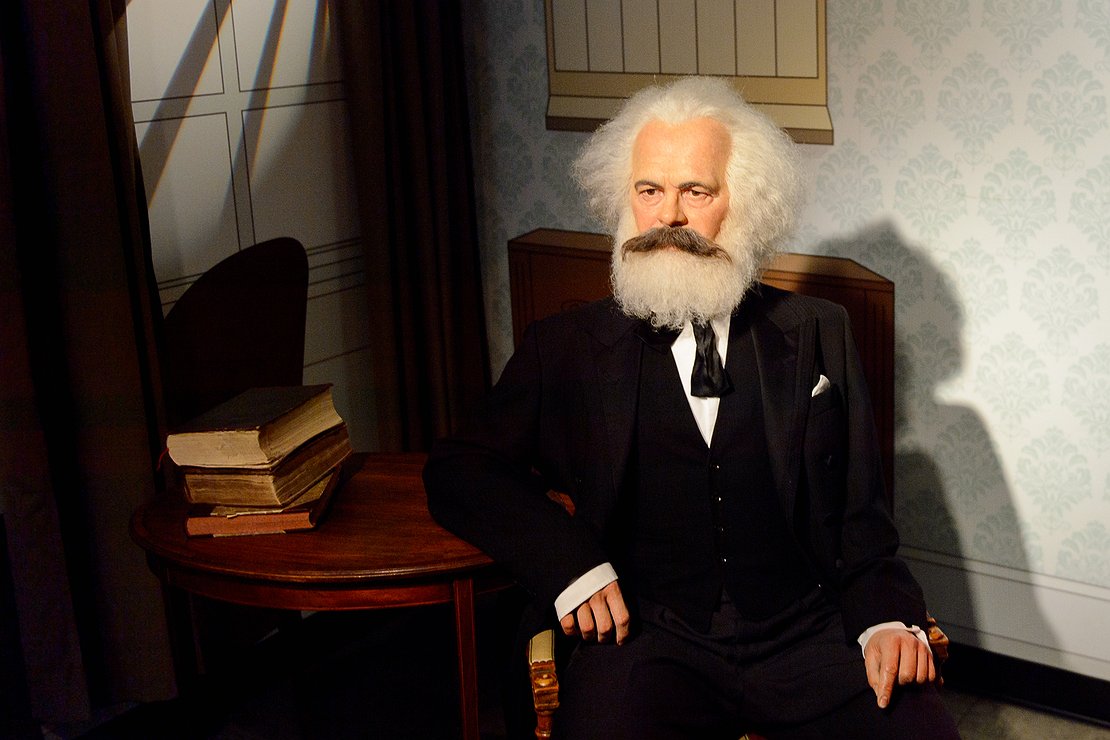
Observing illegal immigration:'Identitarians' make Leviathan jump
The Identitarian Movement (IM) have achieved a tremendous success for themselves – perceptible due to the fact that the mainstream media no longer reports anything at all about the IM’s C-Star expedition in the Mediterranean. When the activists overcame the gleefully reported difficulties and mishaps with their chartered ship, the mainstream journalists turned back to the main task for which they are hired and paid for: staring holes into space and filling them up with their own hot air.
On YouTube, on the other hand, we can find more substantial information about the campaign. The head of the ship's IM activists, the Austrian Martin Sellner, describes how the presence of his ship off the Libyan coast led to the Italian and Libyan coast guard becoming much more active and making the NGOs' work much more difficult. This much we had gathered from the mainstream media, but only those who had followed the travails of the C-Star suspected the true cause: The IM's ship off the Libyan coast had caused the authorities to take a closer look at the NGO's activities.
Sellner also pointed out that, despite the best weather conditions, the NGO ships did not pick up any refugees as long as the C-Star was close by. On the other hand, his ship was prevented from docking anywhere, not even to receive provisions and fresh water. Not in Tunisia, not even in Malta, an EU country. Instead, there seems to have been further sabotage attempts by detractors. We can look forward to more detailed reports, especially regarding interesting radio messages relayed between various NGO ships, which the C-Star was able to record.
In contrast to practical activity, the Identitarians’ work on theory seems to be hibernating. And this is probably a very good development. The leading theorist of IM Austria, Alexander Markovics, is said to have left the group in May. This at least is reported in a very IM-critical article on a blog which calls itself “Gesänge der Inhumanität” (“Chants of Inhumanity”). If true, that would be advantageous for the IM. Markovics recently wrote a commentary on the Austrian FPÖ election platform. If the IM were to turn this commentary into the basis for their political program, it would immediately turn them into an absolute political no-go area for libertarians.
Markovics likes FPÖ demands ‘which bear a social handwriting.’ For example the re-industrialization of Austria, the restoration of local supplies in rural areas, the strengthening of local tourism, the preservation of the free access to universities. Things which, under current circumstances, would intensify state interventions into the economy. Anyone who grants such powers to the state confers power to people over whom they have no influence. They should not complain about any undesirable results later.
But Markovics has more comments to make. ‘In many areas where the economic program could make a mark, the libertarian streak of the FPÖ makes an unfortunate appearance,’ he writes on unser-mitteleuropa.com. Markovics is shocked that the FPÖ is categorically against any inheritance tax: This would enrich the ‘oligarchs,’ while ‘social injustice’ would increase. Worse, he also finds that the FPÖ is against a machine tax. He could be fighting for a downwards adjustment of the payroll taxes to the non-existent ‘machine payroll taxes.’ But no: he wants an upward alignment. It does not seem to bother him that this would kill investments.
Much of his criticism sounds quite reasonable. For example, the FPÖ does not want to leave the EU, but only wants to reform it (which he rightly believes is impossible) and it does not want give up the euro, instead the party wants to renegotiate it.
In the end, however, comes the final straw. Or rather, hammer and sickle: ‘More capitalism is not the solution to the problems of our time, but less. In terms of economic policy, he demands that the FPÖ should turn more to the left than to the “extreme center” of SPÖ and ÖVP, the two large mainstream parties of Austria. And rather study the concepts of growth regression of Attac and the New Right instead of turning to the Hayek Institute.’
Attac as a model? Well, it is nothing new that there are socialists even on the nominally ‘right’ side of the spectrum. Socialism, another word for ‘growth regression,’ is the true paradise of the oligarchs – which is why there are oligarchs in the West now as well – and is the death of Western civilization. And the fundamental cause for the migration crisis.
It is precisely this civilization, however, that the IM purports to want to save. Thus it is to be welcomed if Markovics has actually left the IM – or vice versa, whatever. Sellner has so far spoken more cautiously and critically with regard to the state. But he also sees in the state as an indispensable instrument with which to achieve the aim of preserving Europe’s ‘ethno-cultural identity’ – with which Sellner appears to mean an organic interaction of regions and nations which resembles, incidentally, the aim of the ‘Kreisauer Kreis’ resistance group during the time of the Third Reich. Forbidden should be burkas, burkinis, minarets and mosques, he said in an interview with eigentümlich frei a year ago. This, according to Sellner, is ‘symbolic politics,’ which is ‘indispensible’ in the struggle against ‘political Islam.’
Freedom of religion is indeed a problem, if at least one religion not only claims universality but also some of its followers are ready not only to push through this claim by force, but also to die in the course of exercising this violence. The libertarian solution to this predicament is the right to secede. Sellner seems to be theoretically open to consider this right. He cannot ‘conceal a certain romantic fascination for the old German patchwork rug of principalities.’ However, one should not forget the medieval ‘empire and the emperor as a peacekeeping power,’ he adds. Considering how weak this peacekeeper was in comparison to the local powers, there are certainly at least some points of overlap with libertarian theory.
The IM does not seem to have developed a concrete idea what role big government ‘Leviathan’ should play. This is not a problem, on the contrary. The IM is currently evolving into a group for whom campaigning is more important than theory. Since the campaign on the C-Star one has to admit: They don’t just talk, they walk the walk. They don’t just complain about how bad a government is which criminally neglects its alleged original task of securing borders and internal peace. They act. Libertarians know that the state ultimately fails in all fields on which it operates. Some are therefore perhaps content to sit back and watch, with or without popcorn, as the whole structure comes crashing down. Others however see that, without the corresponding cultural foundation of its inhabitants, the power vacuum left by the Western state will be replaced by another, and probably worse, state.
In any case, the IM appears to be mainly active in ‘proto-political area.’ It wants to occupy terms and content ‘which encompass the entire social discourse.’ In this way, the IM is taking the same line as the late founder of the American conservative website ‘Breitbart,’ who once said that politics is downstream from culture. In other words, the IM wants to take up the fight with the Gramscian cultural Marxists where their influence is most vicious: not primarily in politics, but in the area of cultural hegemony.
This does not stop the state, which of course is also dominated by cultural Marxists, from having the IM under surveillance in Germany by the Federal Office for the Protection of the Constitution. Or to attempt to intimidate them by other means. For example by entering Robert Timm’s flat and having it searched, while he, the head of the Berlin section of the IM, was on the C-Star in the Mediterranean. The reason for the search: the Berlin IM had distributed pepper spray cans to women.
In the meantime, however, the group around Sellner has shown that it has learned from the cultural Marxists. You do not have to occupy government to run it. In the Mediterranean they made Leviathan dance to their bosun’s pipe. This is quite a remarkable, courageous achievement. Theorists debate what is to be done. Practitioners do something, check how it goes, and adjust. In a time when changes are urgently needed, there is necessarily space for both.
Translated from eigentümlich frei, where the original article was published on 28th August 2017.




